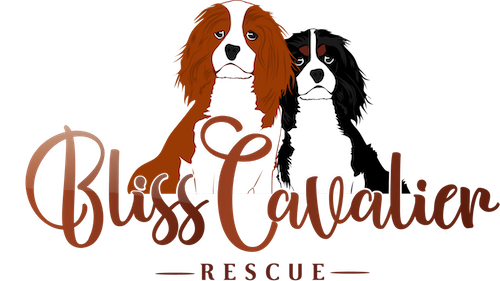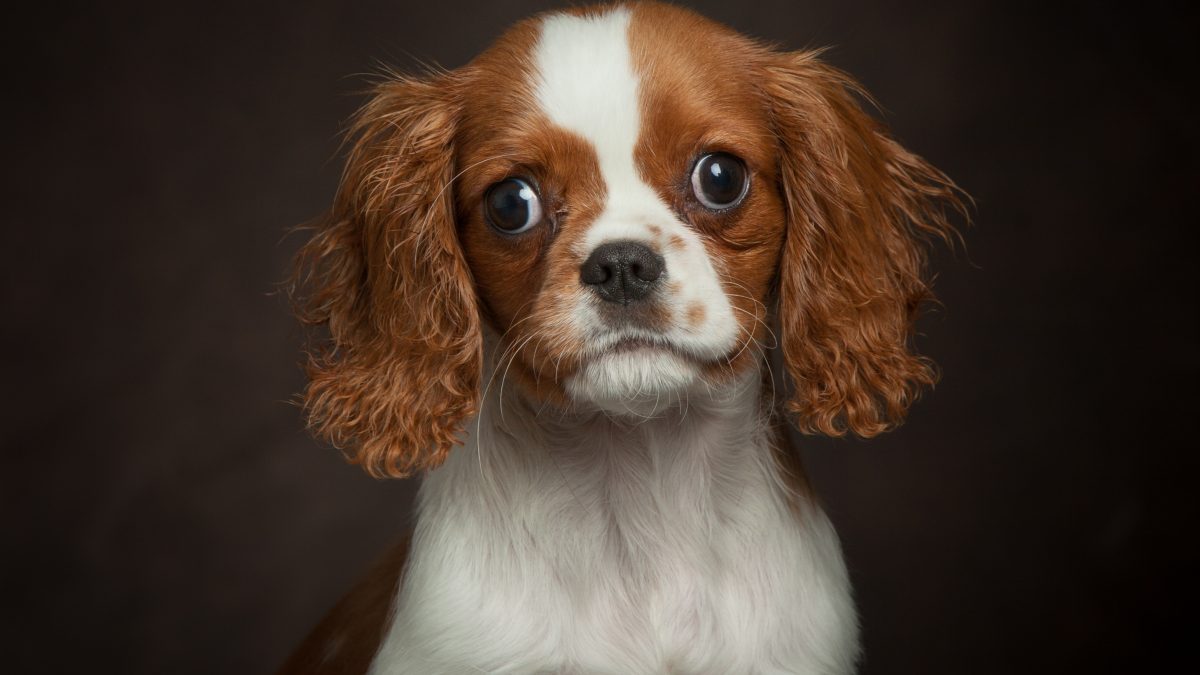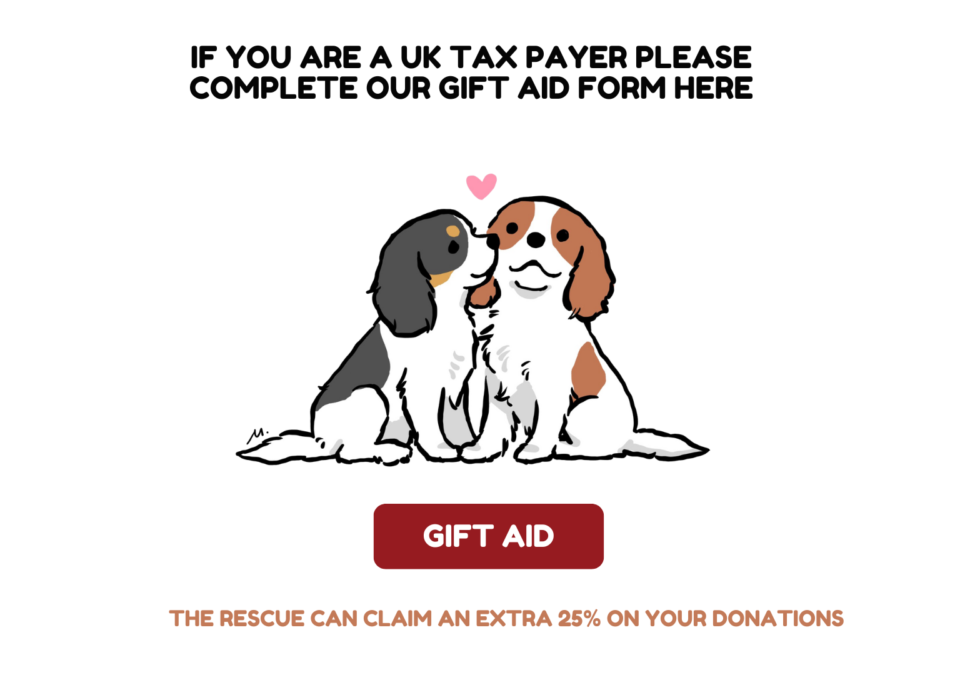Dog demand in the Covid-19 Pandemic raises huge concerns

Scammers offering dogs for adoption and posing as rescue charities
23 November 2020
Bliss Cavalier Rescue Petplan Charity Team Of The Year Nomination
11 December 2020As a rescue we are very alarmed following another surge in enquiries from people looking to adopt puppies and young dogs from us since the second lockdown restrictions were lifted. The sheer number of enquiries is unprecedented.
We rarely have puppies in rescue yet the number of requests for puppies is vast. In just one morning recently we received 23 emails and social media messages from members of the public wanting a puppy or young Cavalier in time for Christmas.
Lockdown Dogs
Sales of dogs and puppies increased immensely during the Covid-19 Pandemic. With everyone forced to stay home and a huge part of the working population now temporarily working from home, thousands of people have decided to welcome a new fluffy addition to the family.
For some, buying a dog or puppy may have been on the cards for some time and a decision that had been thoroughly thought through and researched. The lockdown measures seemed like the perfect opportunity to get a dog and have the time to spend with them. However, for many, dog purchases have been carried out on a whim; chosen and bought online, without considering where the dog was bred, its health, or how that dog will adjust to life when things return to normal.
As a result of this surge, demand for puppies has been astronomical, which in turn, has driven prices up to eyewatering heights. Sadly, this also means a large number of backyard breeders have jumped on the bandwagon and puppy farms have profited handsomely from the situation.
Impulse puppies
Recent research carried out for The Kennel Club, found that around 1 in 4 puppies bought during the pandemic, were done so with little to no research, and 41% of people bought a dog specifically to just be a companion during lockdown.
Shockingly, a quarter of people admitted they didn’t properly research where they were buying their dog from, admitting it could have well been from a puppy farm.
To add to this, research also found that 27% of people actually paid money for dogs before even seeing them and nearly half of people didn’t see the puppy’s home environment or where it was bred, not even via videocall. Lastly, 83% of people said that they were asked no questions by the breeder about their home life, working hours or suitability as owners.
Adult Cavaliers being sold for thousands of pounds
We have seen a large number of adult Cavaliers being sold for thousands of pounds. Most of the dogs have been family pets, some with pre-existing health conditions buyers didn’t understand or budget for. Just this week an adult ‘pet Cavalier’ was for sale for £5,500.
Many of these dogs usually would be surrendered into rescue instead of being sold to ensure their safety for the rest of their lives, now bidding wars and scarily high prices mean many choose to sell their Cavalier instead. One seller was offered £1000 on top of their sale price by desperate buyers.
No doubt this huge increase has driven up dog theft cases and further increased unethical breeders desire for even more litters to be born and sold. Other rescues have also informed us that many more dogs are being bred and imported from overseas.
Life after lockdown?
For many people, having a canine companion has been hugely comforting, some even saying they have been a lifeline during this pandemic. But sadly many people haven’t yet considered how their family addition will cope once life returns to normal, and charities are concerned there will be an increase in the number of dogs abandoned or handed in to shelters. In fact, half of people surveyed said they hadn’t thought about what would happen when they return to work.
Something else to take into consideration is that socialising puppies from a very early age is essential for developing good behaviours around other dogs and people. With lockdown and social distancing measures making this often impossible, many new owners may find themselves with a dog that displays unsociable or even dangerous behaviours when they do finally interact with society.
How dog demand has fuelled puppy farms
When you hear the term ‘puppy farm’ you might think they’d be easy to spot. You may think of actual farms, with pen upon pen of breeding dogs that would make you run a mile. When you see dogs advertised as coming from family homes or only litters, you may take their word for it. Puppy farms are another word for mass-breeding of dogs, and these often have little to no regard for both the mothers or the puppies’ health. Puppy farms are now using more sophisticated ways to sell their dogs and the Covid pandemic has assisted in this.
Dogs from puppy farms are often moved to or sold from regular ‘homes’, with no health checks, often underage and without the mother. Sometimes ‘fake’ mums are used, or sellers have numerous excuses as to why the mum can’t be seen right now. The lockdown measures have also assisted with this, giving unscrupulous sellers the perfect opportunity to sell dogs without buyers being able to carry out thorough checks.
Thousands more dogs and puppies than usual have been imported to meet the demand, buyers are meeting the dealers in car parks, lay bys or are having the dogs delivered. Very sadly these imported dogs will not have had any health tests and many have been poorly as a result.
They have been able to sell dogs via photos online and handed over in carparks, without buyers viewing its home environment, all under the guise of ‘Government restrictions’. And for many, desperate for a puppy, this has just seemed par for the course.
Sick and dying dogs
Due to the number of unhealthy dogs sold, there are an increasing number of people that are now left with very poorly puppies, that require expensive veterinary treatment, or sadly, puppies that have died soon after purchase.
Love Island star and social media influencer, Molly-Mae Hague was recently in the papers after purchasing a tea-cup Pomeranian from a pet seller who imported the tiny puppy over from Russia. After only having her puppy for just a few days, he sadly died, apparently due to a malformation of the skull.
Many other social media influencers and YouTubers have also recently bought puppies, despite usually constantly travelling with work prior to the pandemic. The very nature of their jobs means that people want to emulate what they have, (in this case a new puppy) but very few have spoken about how to find reputable breeders and avoid puppy farmed dogs. Rightly so, many people are now concerned as to what will happen once life returns to normal?
What happens next?
With tens of thousands of puppies now turning into dogs and the hope of normality beginning to resume next year, what is the future of all these puppies of the pandemic? It goes without saying that for many, this new addition will bring joy, happiness and companionship. Their lockdown Labrador or Covid Cockerpoo will be the best thing to come from 2020.
However, for many purchased on a whim, they face the prospect of being home alone all day when their owners return to work, resulting in separation anxiety and possible behavioural issues. When owners return from work will they have time for their puppy still? When holidays can be booked again, will owners be able to find or pay for suitable care if they’re not willing to take their new family member along?
Will owners who have unknowingly purchased unhealthy dogs and now facing expensive vet costs, afford these for the next 10 to 15 years? And what about the poor breeding dogs; kept in horrific conditions to produce litter after litter until they’re no longer useful? If they’re lucky, they’ll end up in a rescue, but that’s not the case for all.
We’re pretty sure that rescues will see a large rise in dog surrenders in the coming months and years, and like them, here at Bliss, we’ll be picking up the pieces and doing what’s best for the dogs. We all remember the 1980 advertising slogan, ‘A dog is for life not just for Christmas’ – 40 years on from that, we need to remember a dog is for life, not just for lockdown.
Considering a puppy?
If you’re still considering getting a puppy, please do your research and find a reputable breeder. Cavaliers have very serious health problems and buying from breeders that do not health test is like playing Russian Roulette. Now probably isn’t the best time, it would be better to wait until things are a little more ‘normal’.
A good breeder will not sell puppies over the Christmas period and will have been planning their litters for a long time. You are likely to need to go onto a waiting list.
At minimum-
- View a puppy in its home environment
- Always view a puppy interacting with its mother
- Always buy from a reputable and Kennel Club registered breeder who will carry out all the relevant health checks
- Never buy a puppy under 8 weeks old
- Consider you homelife and how this may change in the future
- Thoroughly research and discuss as a family, whether a dog is right for you and your lifestyle.
- Make sure you get a lifetime insurance policy, good breeders will offer you 4 weeks free insurance.
Before making any commitment please read the Dog Breeding Reform’s Puppy Guide
Notice: Trying to access array offset on value of type null in /var/www/vhosts/blisscavalierrescue.org/httpdocs/wp-content/themes/betheme/includes/content-single.php on line 286




